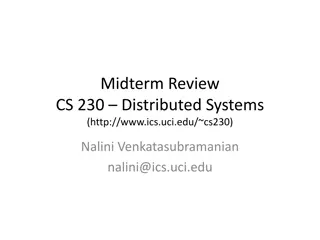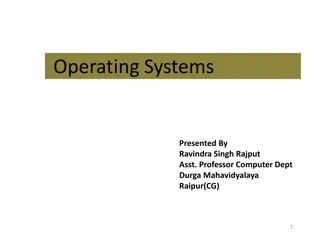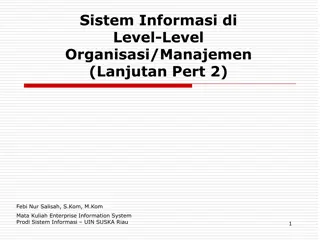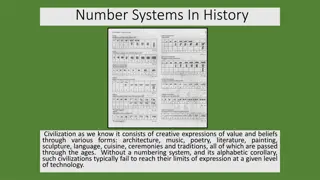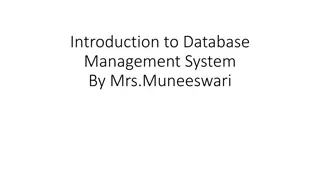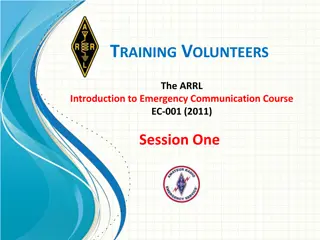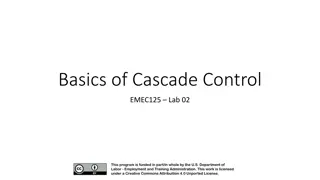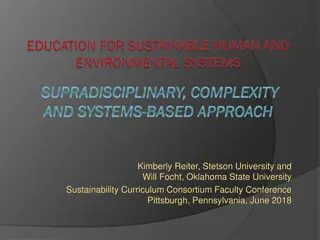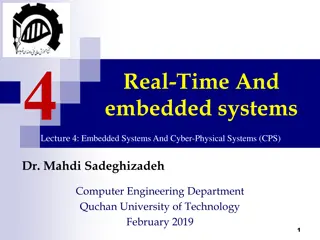
Education Systems and Learning Outcomes in Developing Countries
Explore insights from the Young Lives research project at the University of Oxford, focusing on survey design, the impact of schools on student learning, and enrollment disparities in countries like Ethiopia, Peru, Vietnam, and India. Gain valuable knowledge on the effectiveness of school inputs, pupil achievement, and curriculum alignment in diverse educational systems.
Uploaded on | 0 Views
Download Presentation

Please find below an Image/Link to download the presentation.
The content on the website is provided AS IS for your information and personal use only. It may not be sold, licensed, or shared on other websites without obtaining consent from the author. If you encounter any issues during the download, it is possible that the publisher has removed the file from their server.
You are allowed to download the files provided on this website for personal or commercial use, subject to the condition that they are used lawfully. All files are the property of their respective owners.
The content on the website is provided AS IS for your information and personal use only. It may not be sold, licensed, or shared on other websites without obtaining consent from the author.
E N D
Presentation Transcript
Education Systems Education Systems Research in Developing Research in Developing Countries: Lessons Countries: Lessons from Young Lives from Young Lives Caine Rolleston Caine Rolleston Young Lives, University of Oxford Young Lives, University of Oxford 21 21st stJune 2013 June 2013
YOUNG LIVES SURVEY DESIGN YOUNG LIVES SURVEY DESIGN Baseline for school surveys - Young Lives longitudinal survey of children, households & communities every 3 years since 2002 12,000 children Ethiopia, Peru, Vietnam, India 20 sentinel sites in each country Qualitative component for a sub-sample School surveys (from 2010) Focus on learning & learning progress School and teacher effectiveness Longitudinal (repeated measures) essential to better understand learning pathways Index children and their class peers sampled at school Rich linked data back to children s birth
DO SCHOOLS MATTER AND FOR WHOM? Despite a large number of studies of the effects of observable school inputs, little consistent evidence on what works in terms of individual school inputs School Mean Maths Scores, Vietnam 20 15 Number of Schools 10 the effects of most school and teacher characteristics are not statistically significant 5 0 the few that are not particularly surprising and thus provide little guidance for future policies and programs Glewwe et al (2011) 300 400 500 600 700 Mean Maths Score School Mean Maths Scores, Peru 20 Yet there are large differences between and within systems on pupil achievement and school effectiveness (value-added to learning) 15 Number of Schools 10 Complex interplay of bundles of inputs , system characteristics, political economy 5 0 300 400 500 600 700 Mean Maths Score
ALTHOUGH ENROLMENT IS HIGH IN ALL YL COUNTRIES THERE ARE LARGE DIFFERENCES IN LEARNING LEVELS BETWEEN SYSTEMS 100 % correct Ethiopia 90 80 70 % correct India 60 50 % correct Peru 40 30 20 % correct Vietnam 10 0 Age 7-8 - 2x4 Age 11-12 - 1 stage multiplication word problem Age 14-15 1 stage multiplication word problem Age 14-15 - 9/8 x 2/3 Age 14- 15 - long multiplication Vietnam - pupils typically able to answer age-appropriate maths items India - pupils master items at age 7-8, but dramatic drop-off by age 14-15 Pupils abilities remain in-line with the curriculum in Vietnam Curriculum in India is progressively over-ambitious compared to actual progress
OVER TIME, A LARGE GAP OPENS UP BETWEEN PUPILS TEST SCORES IN INDIA AND VIETNAM Site-level average maths score at age 7-8 1 0.9 0.8 0.7 0.6 0.5 0.4 0.3 0.2 0.1 0 India Vietnam Site-level average maths score at age 14-15 20 18 16 14 12 10 8 6 4 2 0 India Vietnam
THERE ARE LARGE DIFFERENCES IN LEARNING PROGRESS OVER TIME BETWEEN SYSTEMS 80 Median Maths Score R3 % 60 40 20 0 0 20 40 CDA-Q Score R2 % 60 80 100 Ethiopia India Peru Vietnam
SCHOOL SCHOOL- -SYSTEM QUALITY INDICATORS: INDIA AND VIETNAM SYSTEM QUALITY INDICATORS: INDIA AND VIETNAM Indicator Vietnam India Mean class size 27.61 16.23 Mean years of teacher experience 17.47 7.71 Mean monthly teacher salary (USD/Month) % of teachers with no formal teacher training qualification Teacher absenteeism 164 226 0% 16.50% 2.34 days per year 35.12% pupils said my class teacher often does not come to school 60.84% All children have access to maths textbooks Teacher always checks/marks maths homework 96.16% 41.28% 18.06%
TEACHERS IN VIETNAM KNOW WHAT PUPILS KNOW TEACHERS IN VIETNAM KNOW WHAT PUPILS KNOW (AND NEED TO KNOW) (AND NEED TO KNOW) 650 600 Young Lives Test Score 550 500 450 400 1 2 3 4 5 6 7 8 9 10 Teacher Reported Test Score
A KEY CHALLENGE IN UNDERSTANDING EDUCATION SYSTEMS IS MEASURING SCHOOL QUALITY Aim to measure the value-added by schools to pupils learning Need to separate the effects of pupils backgrounds and prior attainment Requires a longitudinal design (repeated test measures) Requires linked data at teacher, school and pupil (background) levels Requires repeated test measures that can be compared on a common scale Example: value-added analysis in Vietnam produces different findings to cross-sectional research Vietnamese 2011 -20.3524 Vietnamese 2012 -19.3315 Vietnamese Value-Added -12.6761 (-5.100)*** 0.2911 (0.042) Male (-6.835)*** (-6.538)*** Ethnic minority -17.6592 -7.1008 (-1.907)* (-0.809)
CONSTRUCTING LEARNING METRICS IS A PARTICULAR CHALLENGE (YL ETHIOPIA) Challenge of low & variable literacy levels Balancing national curricula/expectations and international norms in literacy & numeracy 8 linguistic groups/ languages of instruction challenge to compare across them requires test-item linking Use of IRT techniques (as in TIMSS) to create common measures over-time and across languages Tests with common items used at beginning and end of school year to measure progress
SCHOOL-LEVELVALUE-ADDED (VIETNAM) School Value-Added: Learning progress attributable to schools and teachers after removing prior attainment and background effects Which Schools Add More Value? 100 Not more advantaged pupils Slightly better physical resources School Value-Added (90% CI) 50 Not better teacher subject knowledge More permanent teachers 0 More teachers with degrees More positive teacher attitudes e.g. -50 The influence of a student s home experience can be overcome by good teaching -100 0 10 20 30 40 50 School Value-Added Rank Teachers more often evaluated
ARE SCHOOL SYSTEMS EQUALLY EFFECTIVE FOR ALL PUPILS? 0.5 Difference in effect on test scores of an increase in school quality (pupils from richest 40% of households compared to the remaining 60%) 0.41* 0.4 0.3 0.2 In Vietnam, schools are equally effective in teaching Maths to children irrespective of backgrounds. 0.1 Proportion of 1 SD of maths test score distribution 0 -0.1 In Peru schools appear to be significantly less effective at teaching children from disadvantaged backgrounds -0.2 -0.18 -0.3 Vietnam Peru
WHAT IS DIFFERENT ABOUT THE VIETNAMESE SYSTEM? Equity-oriented centralised public school system Less evidence that disadvantaged pupils attend lower quality schools Less evidence that schools are less effective for disadvantaged pupils High-performance for the majority linked to equity orientation Emphasis on fundamental or minimum school quality levels (especially in disadvantaged areas) Common curricula & text books in use matched closely to pupils learning levels Commitment to mastery by all pupils - use of regular assessment by teachers Teacher knowledge (YL curriculum tests) is similar between more and less disadvantaged areas, absenteeism is low across almost all schools
KEY MESSAGES Theory of change depends on the system too Adequate data and learning metrics are often not available Centralised, authoritarian, technocratic (Vietnam) Measuring school quality requires robust longitudinal design Federal, democratic, bureaucratic, pluralistic (India) Largest differences between systems (e.g. more than public vs private) school quality varies very widely in heterogeneous systems Context paramount
FINDING OUT MORE caine.rolleston@qeh.ox.ac.uk caine.rolleston@qeh.ox.ac.uk www.younglives.org.uk www.younglives.org.uk




